Please Say The Dailey
Please Say The Dailey is hosted by Vanisha R. Dailey, a sociologist and cultural commentator exploring queer identity, community, and the social systems that shape everyday life. Through research-informed conversation and cultural analysis, the show examines sexuality, digital culture, sustainability, and the norms we take for granted—bridging lived experience and sociological insight.
Please Say The Dailey
Breaking Down Bisexuality: Myths and Realities
In this episode, Vanisha R. Dailey explores the complexities of sexuality, focusing on bisexuality and the societal challenges faced by bisexual individuals. She discusses the importance of bisexual awareness, the history of Bi Visibility Day, and the misconceptions surrounding bisexuality. The conversation delves into the impact of heteronormativity and cultural hegemony on sexual identity, as well as the unique struggles faced by bisexual people. Vanisha shares personal reflections on her own sexual identity and emphasizes the importance of community and living authentically.
---------------------
Click Here For My Stay Golden Hawaii Discount Code
Velasco, J., Miranda-Tena, A. & Sanmartín, F.J. Bisexual Discrimination, Internalized Binegativity and their Impact on Mental Health. Sex Res Soc Policy 21, 1100–1111 (2024). https://doi.org/10.1007/s13178-024-00990-9
https://guides.library.unt.edu/LGBTQ/biweek
Queerness in Nature
https://equalitytexas.org/blog/queerness-in-nature-is-all-around-us/
Become a supporter of the show!
Thank you for visiting!
Vanisha R. Dailey, Please Say The Dailey
SayTheDailey@gmail.com
Become A Supporter Of The Show:
https://www.buzzsprout.com/2452408/support
Instagram: @VanishaRDailey
Love the music playing on my podcast? Check out the talented @StrBabyJackson on Instagram and thank me later!
You are now tuned into Vanisha R Dailey. Please say the daily. Ha ha ha. Hey, hey, y'all. Welcome back to another episode of Please Say the Daile y with your host, moi, Vanisha R. Dailey. This is the 11th episode, and I'm going to keep it short, sweet, and straight to the point because we are going to talk about sexuality today. Did y'all catch that unintended pun? That's one thing to know about me. I am the queen of punning. So if you're new here, I have a BA in sociology with a focus in environmental and natural resources. And I'm currently a grad student studying digital sociology. And today, we'll break down the reasons why bisexual awareness is necessary and delve into how our society impacts how people navigate their sexual identity. I think it's time that I share a little of my own story as well. Also, keep your ears open during this episode because I plan to include some first-time details Let's get into it. Happy Bisexual Visibility Month! There are actually multiple timeframes that are celebrated throughout this month. There is Bi-Visibility Week on September 17th through the 23rd, and then the last day of that week, September 23rd, is Bi-Visibility Day. So the all-encompassing celebration month for bisexual awareness is September. This month completely embraces bisexuality, pride, and awareness. And I know there's someone out there already scoffing, thinking that this is some new Gen Z creation, but it's not. It was the year of 1990 in San Francisco when they had initially talked about making an official day for bisexual awareness. But unfortunately, their initial plan of creating that day was not set in stone until the year of 99, when the International Lesbian and Gay Association Conference was held in South Africa. This is where Bi Visibility Day was officially created by three Americans, Wendy Curry, Michael Page, and Gigi Raven Wilbur, all of whom are bisexual, and the other special dates for visibility eventually followed. So this episode about sexuality was inspired by something that someone said to me. They told me that being heterosexual, aka straight, was, of course, the normal way to be. It was such an interesting comment that just so happened to come about after at the perfect time for me to ponder on. Because I had just finished reading this epic article that was assigned for one of my classes entitled, Queerness in Nature is All Around Us, where they speak on countless scientific discoveries and examples of sexuality, gender, and sex diversity within the animal kingdom. From same-gender partnerships in tortoises to clownfish's ability to change genders and even how dolphins have sex for pleasure, like humans without the goal of reproduction in mind. All of these cases made me wonder, why would we ever think that humans, who are also animals, are exempt from this discussion of being organically queer? Bisexual people are actually the largest group within the LGBTQIA plus community, and many of us identify with other terms that fall under the category of being bi. For example, I self-identify as queer first, but I am also bi. The term pansexual fits too. And then there are demisexuals and sexually fluid people out there, as well as many other terms that you'll have to look up the definitions for on your own terms. Ha! Another pun! It really just depends on what suits you and your identity in the moment, because trust and believe I have had my own journey with labels. But let me give you a really great quote on what I believe it means to be bisexual. I call myself bisexual because I acknowledge that I have in myself the potential to be attracted romantically and or sexually to people of more than one gender, not necessarily at the same time, in the same way, or to the same degree. These are the words of Robyn Och s, who is an activist and writer on sexual identity, specifically bisexuality, and I could not agree more. But even though she stated that so eloquently and precisely, the unfortunate part is that people who identify as bisexual receive a lot of heat and misconceptions from not just straight people, but the LGBTQ community as well. In a study conducted by the Department of Psychology, University of Corduba, Corduba, España (Spain) They found a positive correlation between what they're calling bi-negativity, which is the discrimination from heterosexual, gay, and lesbian communities onto bi people and their mental health. Their findings concluded that bisexual people experience more depression, anxiety, and that there's a major need for social support within their communities. So this is why Bisexual Visibility Month is imperative. The European Institute for Gender Equality mentions that, quote, heteronormativity is what makes heterosexuality seem coherent, natural, and privileged. It involves the assumptions that everyone is naturally heterosexual and that heterosexuality is an ideal superior to homosexuality or bisexuality, end quote. This is how compulsory heteronormativity, also known as comphet, for short, comes into play. This is a term that was coined by academic and feminist Adrienne Rich in her 1980 essay entitled Compulsory Heterosexuality and Lesbian Existence. The term comphet is all about how heterosexuality is the default sexuality of the majority. It's assumed and pushed onto everyone. This is all a patriarchal development of centering men. Many people have falsely believed that comphet is a term for just the lesbian experience, but it's not, because even straight people experience this. Let me give you some examples of what it looks like. When people assume that a child will get married to the opposite gender, have a traditional family, and have children? Or what about how religion imposes heterosexuality and demonizes one for being gay or lesbian? Or that people ask young children, typically little boys, whether they have a girlfriend or not. Remember the movie My Girl, where Veda and Thomas J. kissed? Now granted, it was a little peck on the lips, nothing crazy, but they were both 11 years old. old when they starred in that movie. How would people have reacted to seeing two boys or two girls giving each other a little peck on the lips? Hmm. All the Disney movies where the princess has to be saved and swept away by her French charming, often ending in a kiss. Side note, but definitely relevant to this conversation, I took a really interesting class during undergrad that was called Disney, Race, Gender, and Empire. Stay with me. We had to watch and analyze all of the popular Disney movies from Cinderella, Snow White, Beauty and the Beast, The Little Mermaid, old and new versions. And then we had to analyze and discuss all of the forms of racism, toxic masculinity, heteronormative frameworks, classism, and really just all of the harmful ways that patriarchal practices have been so embedded within these movies. Something as harmless as or so we've been taught to think Disney movies are, but they actually heavily perpetuate the compulsory heteronormativity assumptions that I'm talking about right here. I remember re-watching these movies and being completely shocked and appalled by how all of these not-so-subtle messages are right there in the movies that are predominantly watched by young children. And at this point, there's no way to deny the fact that people are heavily influenced by the media, especially young children who are literal sponges to whatever they're being exposed to. The amount of full-blown flirtation being shown to children, aggressive mean bullying behavior, violence, and the very persistent chasing habits of some of these male characters was wild. Because had these situations taken place in real life, it would have been sexual assault. Anyway, let me bring it back in. I always find this conversation to be hilarious because this is exactly what we hear many conservatives blame the LGBTQ community for, or as they like to call it, the gay agenda, which for the record is not an actual thing. Because what I really want to know is, where was that same energy with all these heterosexual norms y'all been shoving down our throats? Or is that not a concern because it's heterosexual norms? Because it's really given heterosexual agenda, actually. Oop. Look, we already know that sexuality is a very complex conversation, and it doesn't help that people have been taught to believe that heteronormativity is not just the right way to be, but the only way that we should be. There is a sociological term called cultural hegemony, which describes how dominance and ruling power is achieved by way of ideological or cultural means. Social institutions are an easy way for those in power to set specific values, beliefs, and norms throughout sociopolitical spaces. And those individuals in power, the ones on top, they have one mission, and that is to get the population to willingly abide by those superficial standards that have been set, leading the masses to believe that there aren't any other ways for one to exist in society outside of that standard. Religion, heteronormativity, and the practice of doing gender are just a few of the many examples of this. But these teachings have led the majority of us to be socialized into strict traditional norms before we're even able to babble a sound. It's the conditioning of individuals before we're even cognitively conscious. Then, because of what we were taught, many people will lead with the conviction that everything that we do has to align with our gender in society. If you are a man, you have to be masculine and you can only like women. And if you are a woman, you have to be feminine and you can only be attracted to men. So where does that leave people who don't satisfy those requirements? When the discussion of bisexual men comes about, they are not viewed as bisexual. They're viewed as gay and their attraction to women is completely ignored. They get robbed of having a queer identity. Men aren't given the space nor grace to explore their sexuality. A man could date mostly women his entire life, have sexual experiences with women as well, but if he shares any level of intimacy with a man, let's say it happened once in his past and he eventually married a woman, he would still be viewed as gay even if he's married to a woman. Now that I think about it, this reminds me of a thread post of mine that a woman commented on. She called herself schooling me on the topic of sexuality by stating that bisexual men are homosexuals. And that's a supreme example of my point. Homosexuality actually refers to a person that has an attraction emotionally, romantically, or sexually with the same gender. And bisexuality is that same type of attraction, but with more than than one gender. The terms homosexuality and bisexuality are not interchangeable. They are two different things. How many times have we witnessed a man that is in a relationship with a woman, and we hear people make comments about him being gay just because he may not be super masculinized? Personally, I have no issue with a person questioning one's sexuality, depending on how they go about it, of course. But the The problem here is that too many people don't give space for the possibility of queerness or bisexuality to exist. This is bi-erasure. And those same people will have the audacity to be mad when these men don't feel safe enough to be honest about who they are to their partners, or they feel like they have to hide parts of themselves, being on the down-low or DL about their sexuality. It's because they receive so much hostility from people in their lives and society but people can only focus on the fact that they're not being honest in their relationships with women. And while I can get how that's problematic, we can't possibly think that ignoring the root of the problem will somehow make the issue of DL men disappear. Listen, this will continue to be an issue until we learn how to do away with being homophobic toward these individuals and simply accept them for who they are entirely, Now, as far as bisexual women, we do share a lot of the same struggles as the men. But bi women are heavily fetishized and often given a pass to be sexually fluid. But that's only when it's performative for the male gaze. Like those women that'll put on a full-blown show with their bestie at a party while guys watch and cheer and then come to find out she's not actually into women like that. Or what about the porn industry, that's a major one. If a guy is with an openly bisexual woman, a lot of people will often assume that the man is benefiting from that dynamic. But if it's a serious woman-to-woman relationship, it's not usually respected or taken seriously. People look at bisexual women and think it's just a phase, or as I've heard people mention, well, they always end up marrying men. So were they ever really bisexual to begin with? I mean, I know of a couple of women who are queer or bisexual, and they felt pressured to follow societal norms by settling down with a man, which is viewed as the safe option to avoid societal scrutiny. But that's not the case for every bisexual woman who ends up with a man. And here's the thing. Even if they did pick a hetero-presenting relationship with that purpose in mind, that still doesn't have an influence on their sexuality. As I've previously covered in my fifth episode of this podcast where I discussed sexual identities, just because you're in a heterosexual-presenting relationship does not always mean that you are a heterosexual person. It doesn't matter how long you've been together. A person's relationship does not always coincide with their sexual identity. Do you know how many people are bisexual, but they're in a lesbian, gay, or in my case, heterosexual- Don't assume you know a person's sexual orientation based off of who they're with, because even if they were a single person, their sexual identity would still exist outside of that relationship as well, just like straight people. Moving right along, I'm sure you all have heard the argument that LGBTQ people are not born that way, like gay, lesbian, bisexual people, etc. have chosen to live their lives that way. So if this is what you believe, I have a question for you. When did you choose your sexuality? When did you choose to be a straight person? Because as far as my own experience around my sexuality, it may surprise some of you to know that I've always been a bisexual person. As far back as I can remember, which is the age of four, I can vividly remember being in daycare and having an innocent liking for both genders. I never thought twice about it because it's always been a very natural and normal thing in my world. And maybe you're afraid of how people will take that information in, the best advice that I can give you is to really lean into being unbothered. You don't have to have some big coming out story. You should be able to live your life openly. People will always have an opinion about what the next person is doing. Who cares? You deserve the space to live your life authentically. What Glorilla say? Because at the end of the day, the day got to end. No, but seriously, this is is why y'all hear me harp on and on about community. People in general need community, but it's imperative for marginalized groups of people because the world can just be so ugly to those that choose to go against the grain. Find your people, the people that love you for you, and do away with or create distance and boundaries for the Thank you. Oh, this just might be my favorite episode yet. Actually, I can only imagine the comments that I'm going to receive about this episode. But I look forward to hearing all about your thoughts and opinions on the discussion that we had today. I would really love to hear about your personal experiences navigating your own sexual identity as well. If you'd like to join in on the conversation, just click the hyperlink in the description box to leave a comment. And of course, you know you can always catch up with me on Instagram. @ VanishaRDailey. Shoot me a DM. I appreciate you all for tuning in. And as always, make sure you follow and share this episode with one of your friends out there because I'm sure there are many people that can relate to this. Until next time.
Podcasts we love
Check out these other fine podcasts recommended by us, not an algorithm.
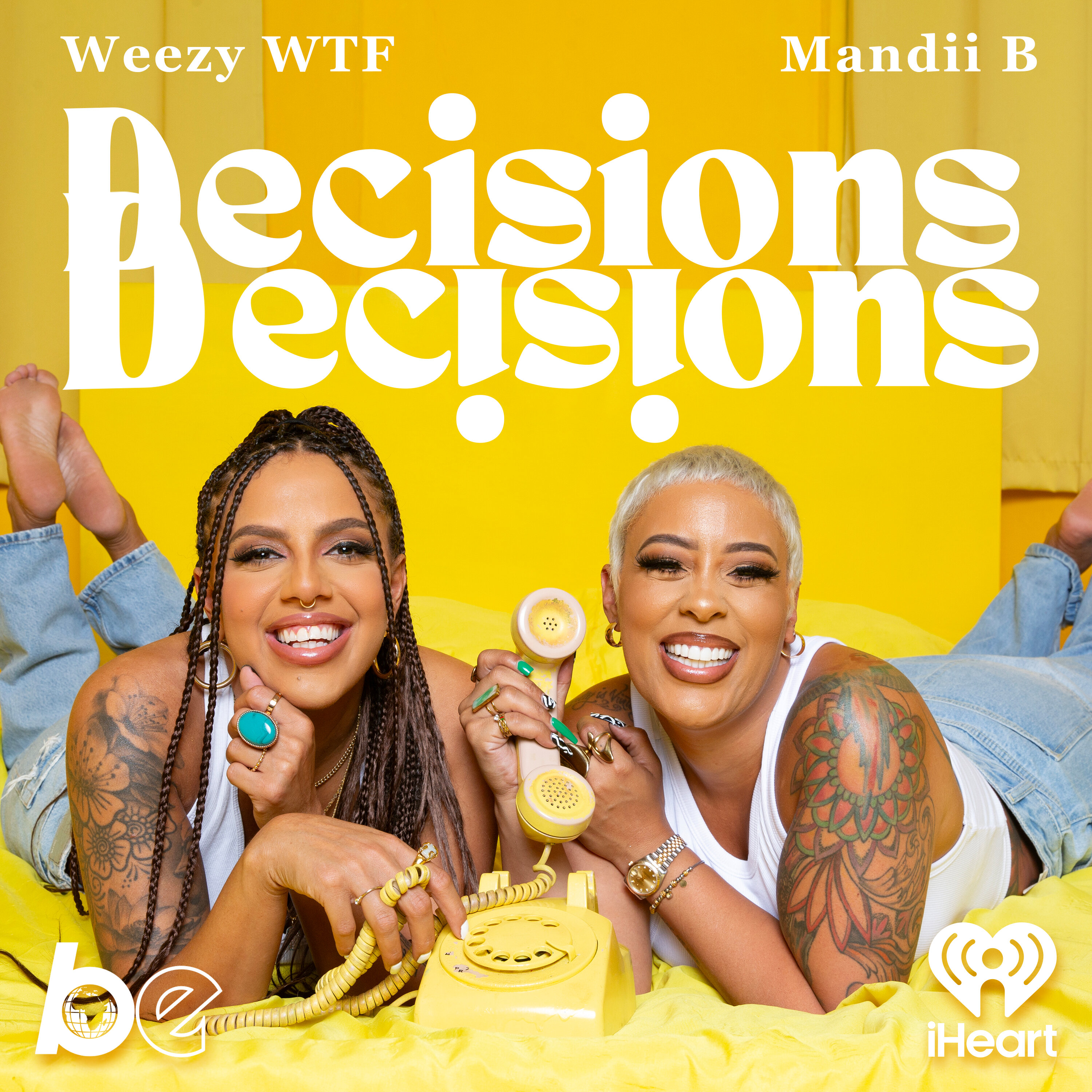
Decisions, Decisions
The Black Effect and iHeartPodcasts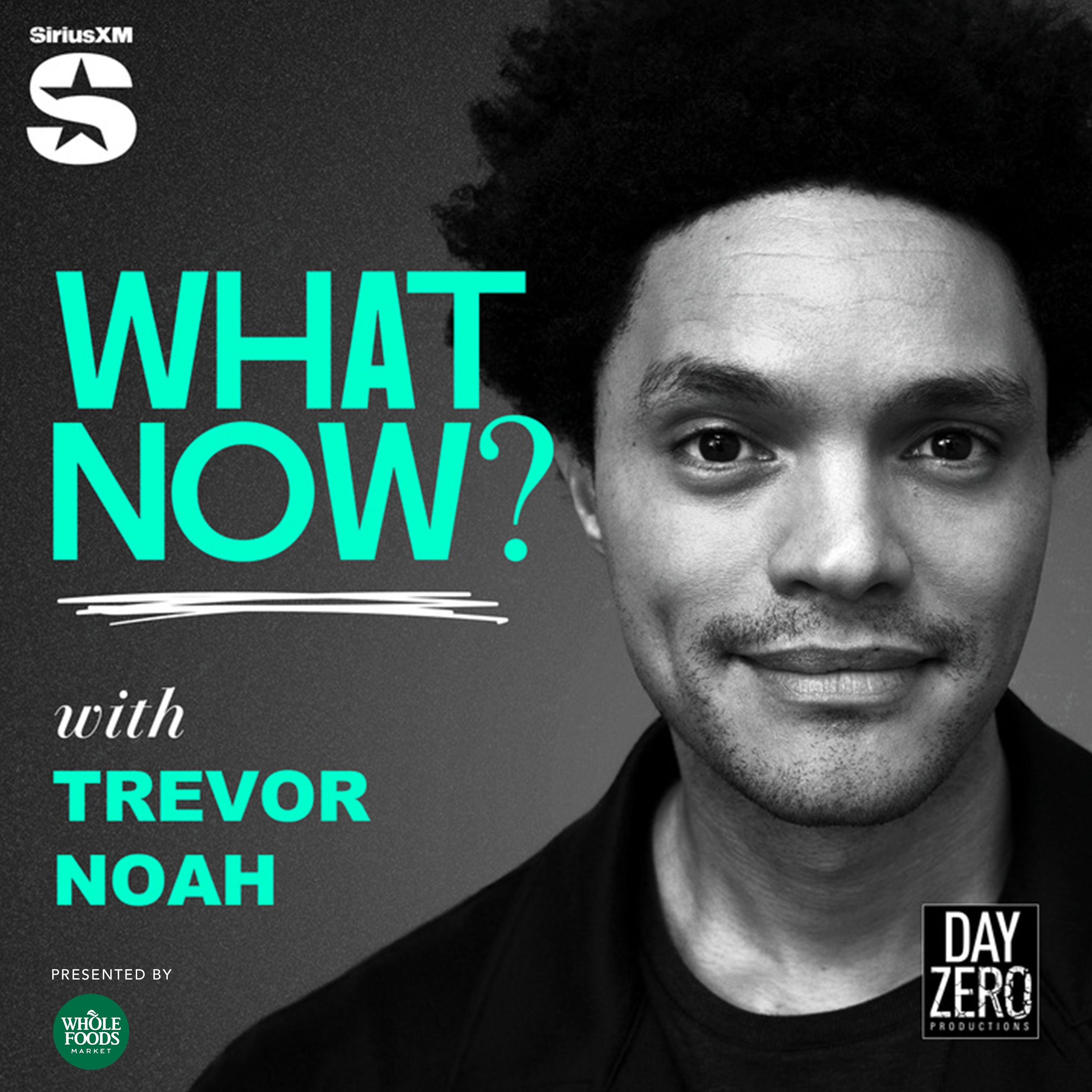
What Now? with Trevor Noah
Trevor Noah
SPOON SPACE
Sunny Dee
LOVERS by shan
LOVERS by shan
Late Night With Ler And Lionel
L&L Network
justUS
justUS Productions
The Mel Robbins Podcast
Mel Robbins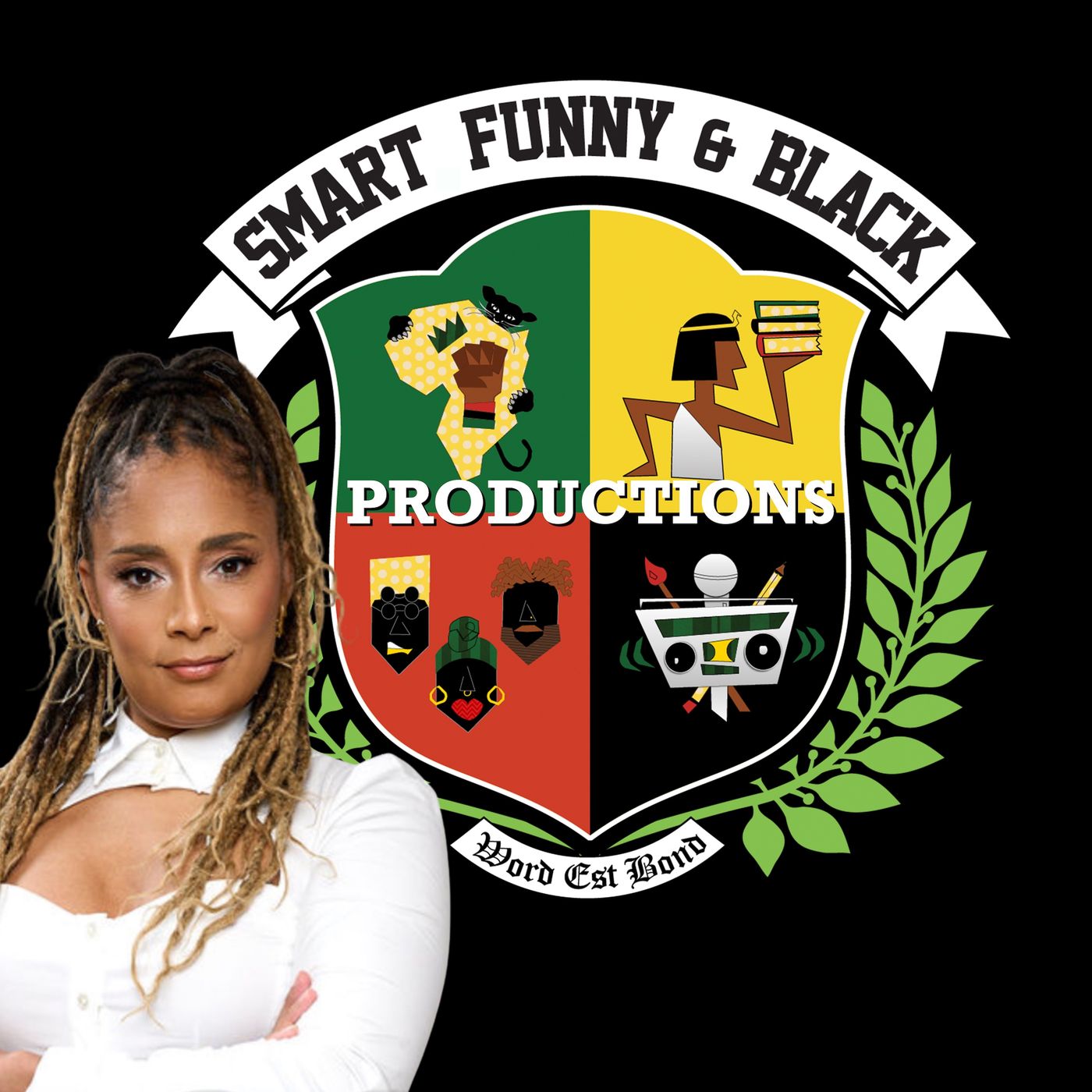
Smart Funny & Black Productions
Amanda Seales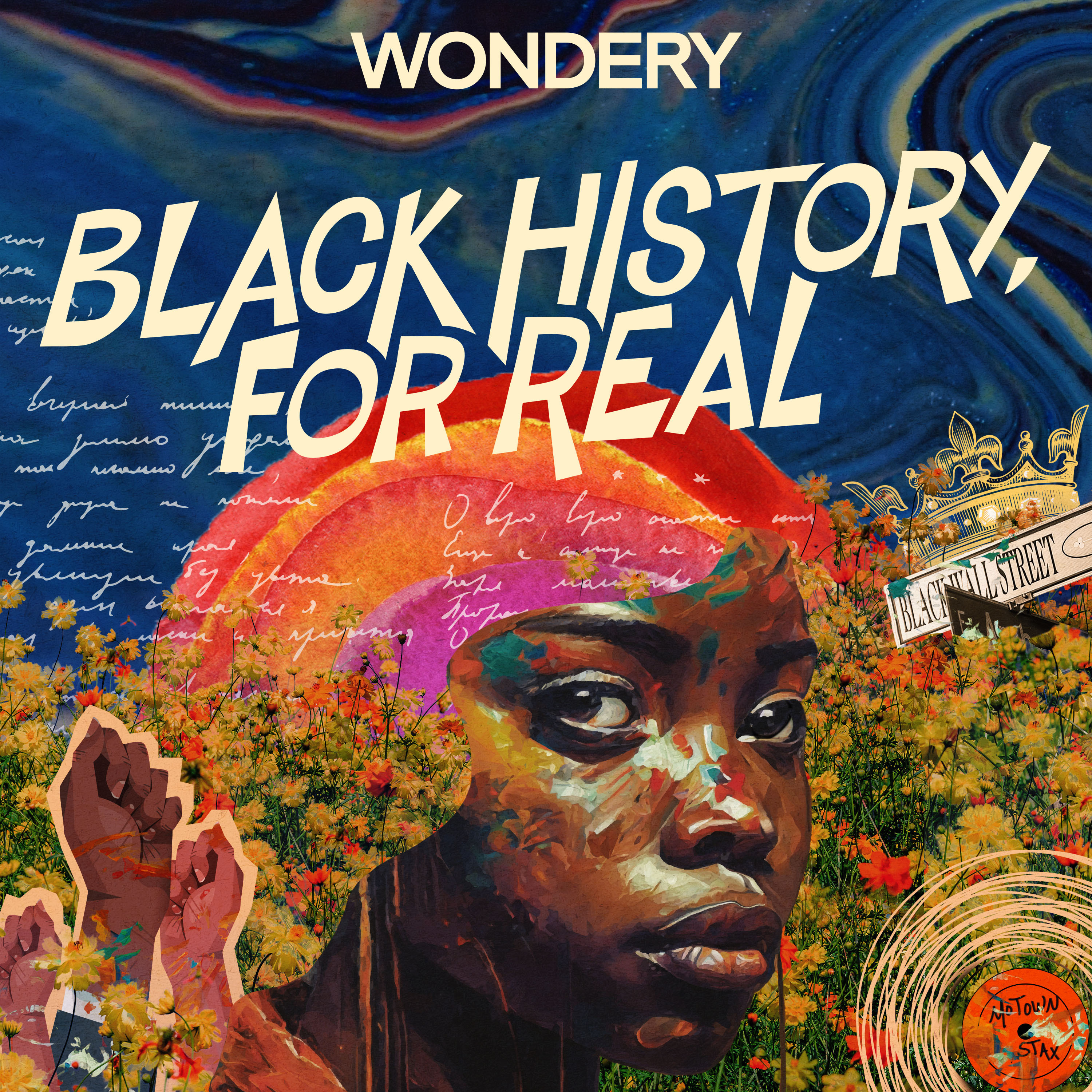
Black History, For Real
Wondery
The Mama's Den
Black Love Podcast Network
Hope & Hard Pills
Andre Henry, TRISHES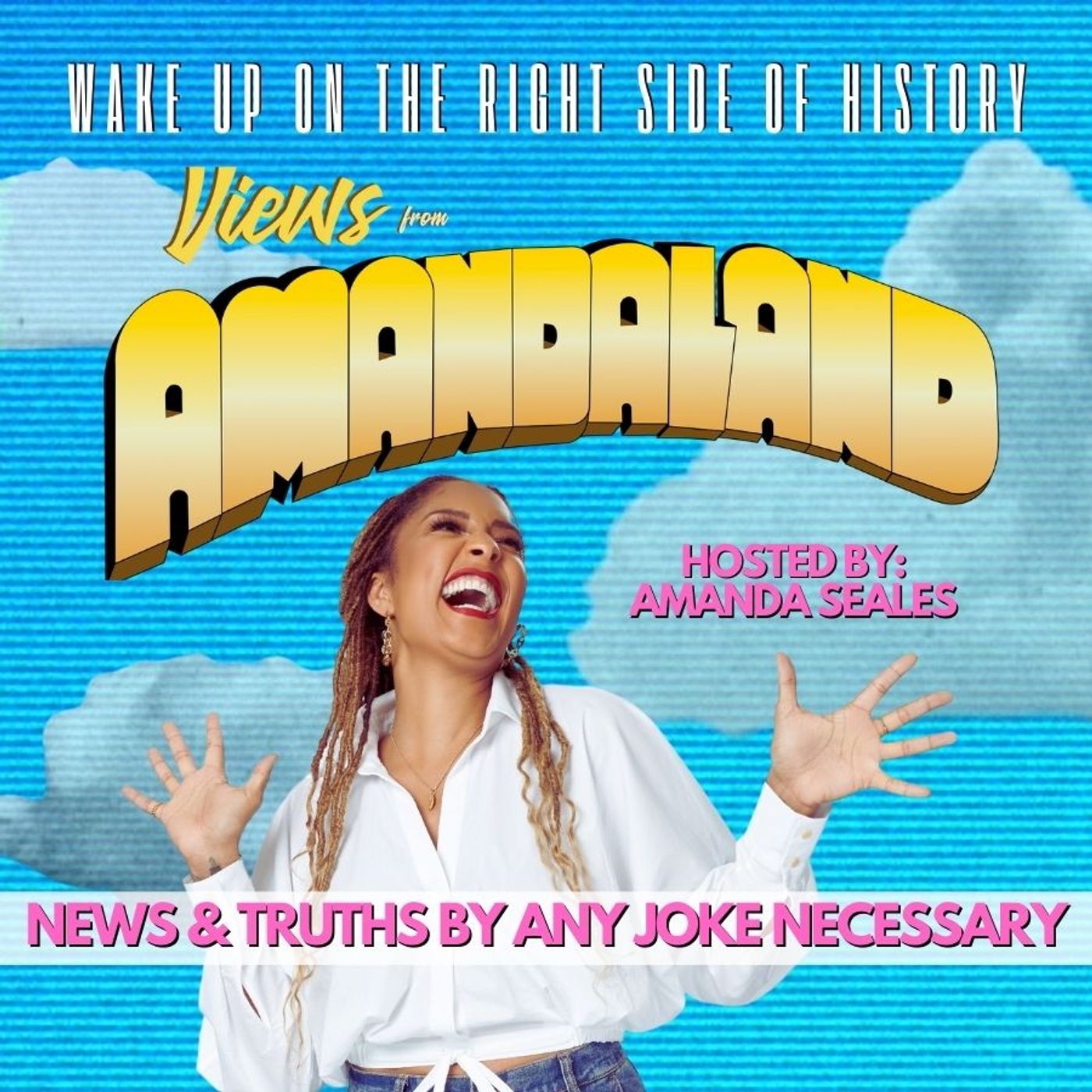
Views from AmandaLand
Amanda Seales